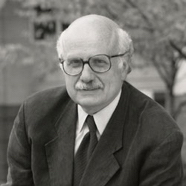Judge’s Special Master Decision Is Dead Wrong; Raises Serious Concerns About Future Role Of Trump-Appointed Judges
 Fred Wertheimer’s Weekly Note | September 8, 2022
Fred Wertheimer’s Weekly Note | September 8, 2022
In 2018, Chief Justice John Roberts said, “We do not have Obama judges or Trump judges, Bush judges or Clinton judges.”
This proved to be true following the 2020 presidential election, when judges appointed by Democratic and Republican Presidents, including Trump appointees, acted at a historic moment to reject the dozens of meritless lawsuits brought by former President Trump and his allies to overturn the election of Joe Biden as President.
Now, however, a decision by federal District Court Judge Aileen Cannon may be a harbinger of things to come that could prove Chief Justice Roberts’ claim wrong.
Judge Cannon’s decision on Monday ordered the appointment of a special master to review the more than 11,000 documents that were removed last month from Mar-a-Lago under a court-approved search warrant in order to retrieve classified, secret, and top secret documents improperly taken by Trump to his country club and home in Florida.
Until the special master completes their work, Cannon also halted the Justice Department’s review of the documents in its criminal investigation. This could slow down the investigation for months.
(On Thursday, the Justice Department announced they would move for Judge Cannon to stay the portion of her ruling enjoining the Justice Department from further review of the classified documents taken from Mar-a-Lago for its criminal investigation, while they appeal the decision.)
Judge Cannon’s decision was dead wrong and ignores the serious damage to national security that delaying the Justice Department’s criminal investigation would create.
Amb. Norman Eisen (ret.) and I discussed this in detail in an op-ed published in Slate on Tuesday.
Here are a few areas where Judge Cannon’s actions have raised serious concerns:
Last week, Cannon issued a preliminary order that she was inclined to grant Trump’s special master request. This was highly unusual in that she seemingly decided the merits of the case before the Justice Department even had a chance to respond to Trump’s lawsuit.
Cannon’s decision on Monday authorized the special master to review the documents not only for Trump’s claims of attorney-client privilege but also for his claims of executive privilege. The latter was also highly unusual, if not unprecedented. (Yesterday, a Washington Post investigation revealed that one of the documents seized at Mar-a-Lago included top secret information about a foreign government’s nuclear capabilities.)
The Cannon decision has been widely criticized. According to The Washington Post, “The sheer volume of criticism on the opinion is remarkable, as is the ideological range of voices expressing it, from Harvard constitutional scholar Laurence Tribe to former attorney general William P. Barr.”
Barr, a staunch Trump defender during his tenure as Attorney General in the Trump Administration, labeled Cannon’s decision “deeply flawed” and “wrong.”
In a particularly criticized passage of her decision, Judge Cannon found that as a former President “the stigma associated with the subject seizure is in a league of its own.” In doing so, she appeared to be giving private citizen Trump preferential treatment, violating the fundamental principle of our country that all citizens should be treated equally under the law.
In a final unusual action, Judge Cannon denied a motion to allow the filing of an amicus brief that had been submitted by a distinguished group that included former Assistant, Deputy, and Acting Attorneys General and top Justice Department officials who served in previous Republican Administrations. (The brief was prepared by co-counsels Paul, Weiss, Rifkind, Wharton & Garrison, LLP; Amb. Norman Eisen (ret.); and myself.)
The brief strongly disagreed with the decision Judge Cannon ultimately reached. She gave no reason why she would not allow it to be filed.
The federal judiciary is the last line of defense in our constitutional system and did a historic job in protecting our democracy from former President Trump’s coup attempt in 2020.
The performance of Judge Cannon, however, is ominous.
There are millions of election deniers in our country, including a substantial number of candidates running for office, who hope to set the stage for a Trump victory in 2024, regardless of the actual outcome of the election.
How many judges like Cannon are out there? That could determine whether the judiciary continues to serve as the last line of defense for our democracy.
________________________
Fred’s Weekly Note appears each Thursday in Wertheimer’s Political Report, a Democracy 21 newsletter. Read this week’s newsletter here. And, subscribe for free here and receive your copy each week via email.